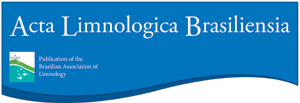AIMS: The present study evaluated the role that increased nutrient concentrations play on zooplankton community, by employing an experimental laboratory approach. METHODS: Experiments were conducted in the laboratory, where three trophic state conditions were simulated, namely, mesotrophic, eutrophic and hypereutrophic. Each treatment was replicated three times and individuals of Brachionus urceolaris (10 individuals), Hexarthra mira (5) (Rotifera), Latonopsis sp. (10), Moina minuta (10) (Cladocera) and Thermocyclops sp. (5) (Copepoda) were introduced to each replicate. On the first experiment day, and at 7-day intervals for a 14-day period (totaling three evaluations), all water content was collected from each container and filtered to determine the densities of each zooplankton species. Two-way MANOVA and one-way ANOVA designs were used to determine zooplankton density fluctuations among treatments and throughout the study period. Further, Generalized Linear Models (GLMs) were employed to assess how environmental factors affected zooplankton numbers. Phytoplankton composition was also determined in the beginning and in the end of the experiment. RESULTS: B. urceolaris and copepod nauplii, which are typical of eutrophic environments, showed higher densities on the eutrophic and hypereutrophic treatments. Furthermore, cyanobacteria such as Aphanothece sp. and Merismopedia sp. were recorded on the eutrophic and hypereutrophic treatments, respectively. CONCLUSIONS: Similarly to what is frequently observed in the wild, the eutrophic treatment showed higher densities of particular zooplankton species which are known to temporarily benefit from an increase in trophic concentrations. Positive or negative responses from zooplankton dynamics (but also phytoplankton species), provide an important bioindicator framework. Furthermore, results of the present study outline the need for implementing recovery measures on aquatic environments subject to constant nutrient inputs.
zooplankton; trophic states; phytoplankton; laboratory experiments








